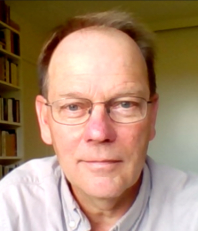
- tkontje@ucsd.edu
-
6th College Bldg 1/Ridge Walk
Room 240
Mail Code: 0410
Distinguished Professor Emeritus

After teaching for several decades in the Literature Department I retired effective July 2024, although I continue to teach on a limited basis for the department. I also had the pleasure of leading a Global Seminar, Revelle in Berlin, in the summer of 2025.
I received my PhD in German literature from Princeton University after having studied English and German at the University of Oregon. I taught at Columbia University for several years before moving to UC San Diego, where I have taught a wide range of courses on German and other European literatures, critical theory, and the Revelle College Humanities program.
My earlier publications focused on the history of the German Bildungsroman and German women writers. I then turned toward questions of empire and German relations with the non-European world. German Orientalisms offers a broad historical overview of the ways in which Germany has defined itself in relation to the East (real or imagined) and in the process set itself off from other Western European nations. Thomas Mann’s World traces the interrelated themes of racial difference and the “Jewish question” in the work of this self-proclaimed representative of the German nation. Imperial Fictions explores how German-language writers from the early Middle Ages to the present imagined communities before and beyond the nation-state. Georg Forster: German Cosmopolitan offers a fresh look at the fascinating life and work of a world traveler, political activist, and cosmopolitan visionary.
My newest book, Global Germany Circa 1800: A Revisionist Literary History (2025), asks two interrelated questions: in what ways did Germans participate in the European conquest of the world, and how did they differ from other imperial powers? What is the relation, in other words, between the German form of empire, the old Reich, and the modern European empires that emerged in the global age?
Over the years my research has been supported by the Alexander von Humboldt Foundation, the National Endowment for the Humanities, and the Guggenheim Foundation. I was proud to be named Outstanding Teacher of the Year for Revelle College in 2000, and delighted that my study of Georg Forster won the award for best book in the fields of literary and cultural studies from the German Studies Association in 2023.
Global Germany Circa 1800: A Revisionist Literary History. The Max Kade Research Institute Series: Germans Beyond Europe. University Park, PA: Penn State Press, 2025.
Georg Forster: German Cosmopolitan. The Max Kade Research Institute Series: Germans Beyond Europe. University Park, PA: Penn State Press, 2022.
Winner of DAAD/GSA Prize for Best Book, 2022.
Imperial Fictions: German Literature Before and Beyond the Nation-State. Ann Arbor, Michigan: University of Michigan Press, 2018.
Thomas Mann’s World: Empire, Race, and the Jewish Question. Ann Arbor, Michigan: University of Michigan Press, 2011.
The Cambridge Introduction to Thomas Mann. Cambridge: Cambridge University Press, 2011.
German Orientalisms. Ann Arbor, Michigan: University of Michigan Press, 2004.
Women, the Novel, and the German Nation 1771-1871: Domestic Fiction in the Fatherland. Cambridge: Cambridge University Press, 1998.
The German Bildungsroman: History of a National Genre. Literary Criticism in Perspective. Columbia, South Carolina: Camden House, 1993.
Private Lives in the Public Sphere: The German Bildungsroman as Metafiction. University Park, PA: Pennsylvania State Press, 1992.
Ph.D., Princeton University